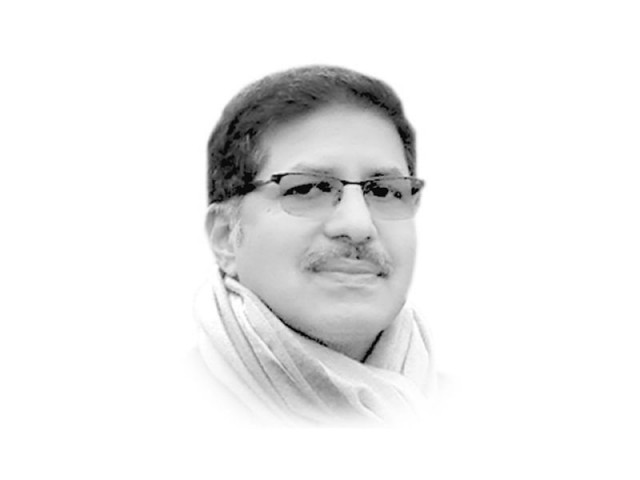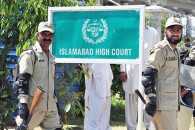In defence of dual nationals
Let me say allegiance is not exclusive; it is earned.

The writer is advocate of the Supreme Court of Pakistan and senior partner at Mandviwalla & Zafar
People forget that of the $12 billion remitted into Pakistan in 2012, a substantial portion was contributed by these dual nationals. The fact is that opportunities of employment and business in Pakistan are scarce, forcing many to seek fortunes abroad. Others may choose dual nationalities for various reasons: greater opportunity of trade and commerce, freedom of travel or simply access to education. The point is that there is no reason why we should doubt a Pakistani’s allegiance only because he is a dual national. While physically these Pakistanis may live abroad, their hearts and souls are still in the country of their birth. They are indeed more informed and concerned about Pakistan and just as patriotic as we who are living here. Most of them give regular support, in cash or kind, to the causes of Pakistan to various charities and are loyal friends of Pakistan.
Pakistani law allows Pakistani citizens to have dual nationality, the rationale behind which is that dual nationals act as Pakistan’s ambassadors abroad, participate in developing Pakistan’s economy and watch out for Pakistan’s interests. This means that all rights guaranteed under the Constitution, including the right to vote, fundamental rights, participation in matters of public importance and access to courts, become available to them.
Dual nationality is reciprocal. For example, under UK law, once British nationality is given to a Pakistani, the person becomes a British citizen with the right to obtain employment benefits, receive free healthcare, join political parties and even hold public offices. No discrimination is made only on the basis that he still holds a Pakistani passport. It is very natural for the British public to assert that such ‘Pakistanis’ would not be loyal to the British and that they should be treated differently, but this is not the case. I have met many people of Pakistani origin involved in British politics who have kept an equitable equilibrium in their loyalty to their adopted country and love and concern for Pakistan. They have raised voices at all levels whenever interests of Pakistan are involved. If the British system has accepted them as their own, there is no reason why we should not acknowledge born Pakistanis as true Pakistanis. Having said this, the framers of Pakistan’s Constitution decided that a person holding dual nationality cannot contest elections. This is because in 1973, the world’s attitude towards the dual nationality issue was still changing. I hope the time will come when this discrimination, too, will be done away with.
I, like many others in Pakistan, was extremely disturbed when the Supreme Court questioned Dr Tahirul Qadri’s right to challenge the constitution of the election commission on the ground that he holds Pakistani-Canadian citizenship. The petition’s dismissal has raised the question of whether a dual national Pakistani is a second-rate citizen who has no right to be concerned with Pakistan’s political system and democracy and cannot file a case for enforcement of fundamental rights. In many cases, the Supreme Court has reiterated the principle that to participate in politics is every citizen’s right. How can access to justice for the enforcement of this right be denied to a citizen who holds dual nationality?
Instead of attacking others for acquiring another nationality, we all need to respect their choices. To stop the exodus of skilled Pakistanis, we have to make Pakistan a land of opportunity, peace and tolerance. Sectarian killings, destruction of Christians’ homes, corruption and absence of rule of law are the negatives which need to be addressed.
Let me say allegiance is not exclusive; it is earned.
Published in The Express Tribune, March 17th, 2013.



















COMMENTS
Comments are moderated and generally will be posted if they are on-topic and not abusive.
For more information, please see our Comments FAQ